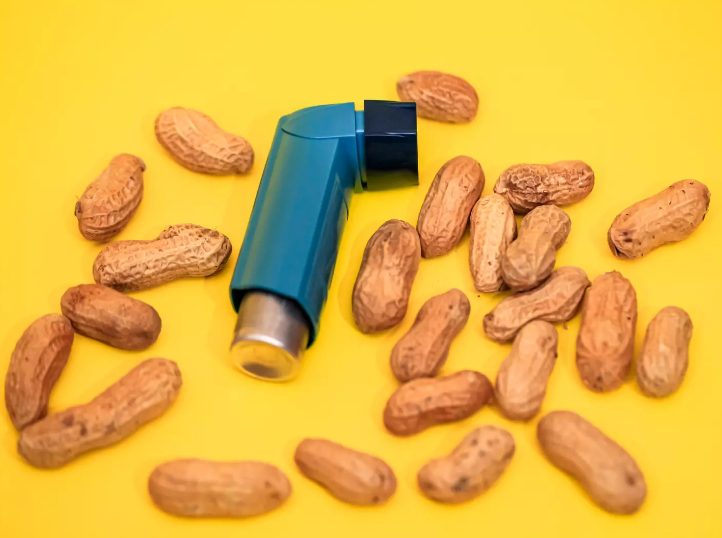A Promising Breakthrough: Common Drug Shows Potential to Save Lives from Food Allergies
A remarkable discovery in the fight against severe allergic reactions has surfaced, with a drug showing promising potential to be a life-saving intervention.
In a recent study published by The New England Journal of Medicine, researchers delved into the effectiveness of a medication when individuals consume small amounts of substances they are allergic to.
The focus was on a drug named omalizumab, which has been deemed a 'breakthrough' in the realm of allergic reactions. Known as Xolair in the UK and US, omalizumab was initially prescribed for patients with chronic idiopathic urticaria, hives, and asthma.
The study involved three adults and 177 children, aged one to 17, who were severely allergic to peanuts and at least two other foods. After about four months of taking omalizumab, a remarkable discovery emerged: 67% of those on the drug could ingest the equivalent of two to three peanuts without significant reactions, compared to only 7% for those on the placebo.
Additionally, 14% of those taking omalizumab still couldn't consume even a fraction of one peanut without experiencing a reaction. This groundbreaking finding prompted Ruchi Gupta, a paediatrician at Northwestern University Feinberg School of Medicine, to express her excitement, stating, "This is a huge breakthrough for food-allergy treatment. Having treatments that can make people feel safer [while eating] is just wonderful. Having new choices for treatments is really just going to help this field so much."
Such compelling results led the US Food and Drug Administration (FDA) to approve omalizumab as a treatment for food allergies earlier this month, marking a significant step forward in the realm of allergy management.
The potential of this drug extends beyond peanuts; it could greatly enhance the quality of life for individuals with various allergies. According to the NHS, omalizumab has been proven to decrease the number of asthma attacks in patients with moderate to severe asthma, sometimes even allowing for a reduction in other asthma medications.
Regarding side effects, the recent US study found no adverse reactions, though it did note a potential decrease in the body's natural defense against parasitic worms. Additionally, the NHS warns of a small risk of developing blood clots in the legs, lungs, heart, and brain.
It's crucial to note that while omalizumab increases the threshold for consuming allergic foods, it is not a cure. Individuals must continue to avoid foods to which they are allergic, as emphasized by the study.
This breakthrough not only offers hope for those with severe food allergies but also opens doors for innovative treatments that could revolutionize allergy management. As we navigate these new possibilities, the future shines brighter for individuals living with allergies.
%20(5).png)










